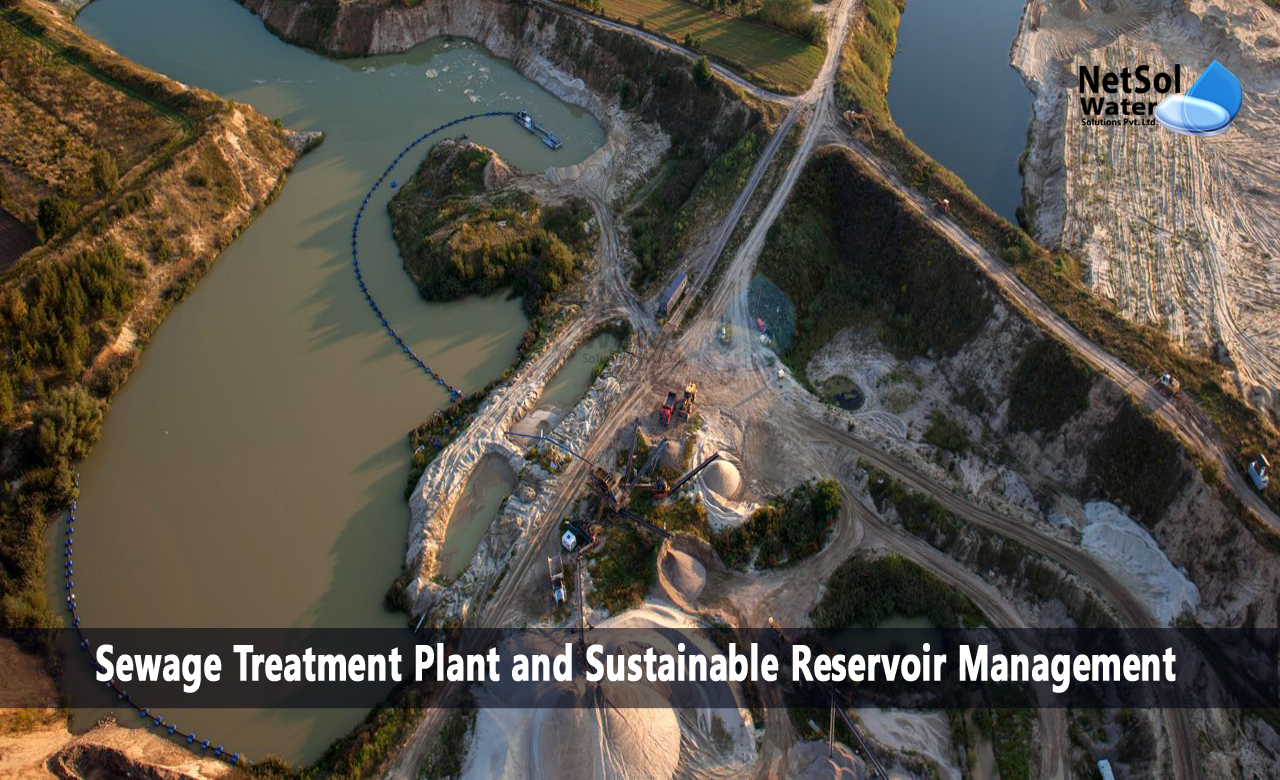The importance of sustainable reservoir management in STP Plants
As the global population continues to increase, ensuring a sustainable water supply and efficient wastewater management becomes paramount. Sewage treatment plants (STPs) play a crucial role in treating wastewater and protecting the environment. However, the availability of freshwater resources is also a significant concern. To strike a balance between water supply and treatment, sustainable reservoir management practices are essential.
In this blog, we will explore the importance of sustainable reservoir management in conjunction with sewage treatment plants to achieve a more efficient and environmentally friendly approach to water management.
The Water Supply and Treatment Challenge
Water scarcity is a pressing issue in many regions around the world. Population growth, climate change, and urbanization are placing increasing demands on limited freshwater resources. Sewage treatment plants are vital for treating wastewater to protect public health and the environment. However, the water required for their operation can exacerbate water scarcity if not managed sustainably.
Sustainable Reservoir Management
Sustainable reservoir management focuses on optimizing water supply, balancing competing demands, and minimizing environmental impacts. By implementing sustainable practices, reservoirs can effectively address the challenges of water scarcity and ensure a reliable supply for both consumption and wastewater treatment.
- Water Reuse: A key aspect of sustainable reservoir management is promoting water reuse. Treated wastewater from STPs can be safely reused for non-potable purposes such as irrigation, industrial processes, and toilet flushing. This reduces the reliance on freshwater sources, preserving them for essential needs, and minimizing the strain on reservoirs.
- Integrated Water Management: Effective reservoir management involves integrating water supply and wastewater treatment systems. By coordinating the operation of reservoirs and STPs, water flows can be optimized to ensure an efficient supply while minimizing wastage. This includes strategic timing of water releases, optimizing water allocation, and prioritizing treated wastewater reuse.
- Rainwater Harvesting: Sustainable reservoir management incorporates rainwater harvesting techniques to capture and store rainwater for various purposes. By collecting and utilizing rainwater, reservoirs can supplement their water supply, reducing the need for excessive withdrawals from freshwater sources. Rainwater harvesting can be employed in both urban and rural areas, contributing to a more sustainable water management system.
- Conservation and Demand Management: Sustainable reservoir management emphasizes water conservation and demand management practices. This includes promoting water-efficient technologies and practices, encouraging public awareness about water conservation, and implementing water-saving measures in industries and households. By reducing water demand, reservoirs can allocate water resources more effectively, ensuring a reliable supply for both consumption and sewage treatment.
- Environmental Considerations: Reservoir management should also prioritize environmental considerations. Maintaining ecological flow regimes and protecting the habitat of aquatic species are vital aspects of sustainable water management. By ensuring that reservoir operations align with environmental requirements, the ecological balance can be maintained while meeting water supply and treatment needs.
Conclusion
Balancing water supply and treatment is a critical challenge in the face of increasing water scarcity. Sustainable reservoir management practices, in conjunction with sewage treatment plants, provide a holistic approach to address this challenge. By integrating water reuse, rainwater harvesting, conservation measures, and environmental considerations, reservoirs can effectively meet the demands of both water supply and wastewater treatment while safeguarding freshwater resources and the environment. It is crucial for policymakers, water authorities, and communities to collaborate and adopt sustainable reservoir management practices to achieve a more efficient and sustainable water management system for a better future.
Netsol Water is Greater Noida-based leading water & wastewater treatment plant manufacturer. We are industry's most demanding company based on client review and work quality. We are known as best commercial RO plant manufacturers, industrial RO plant manufacturer, sewage treatment plant manufacturer, Water Softener Plant Manufacturers and effluent treatment plant manufacturers. Apart from this 24x7 customer support is our USP. Call on +91-9650608473, or write us at enquiry@netsolwater.com for any support, inquiry or product-purchase related query.



